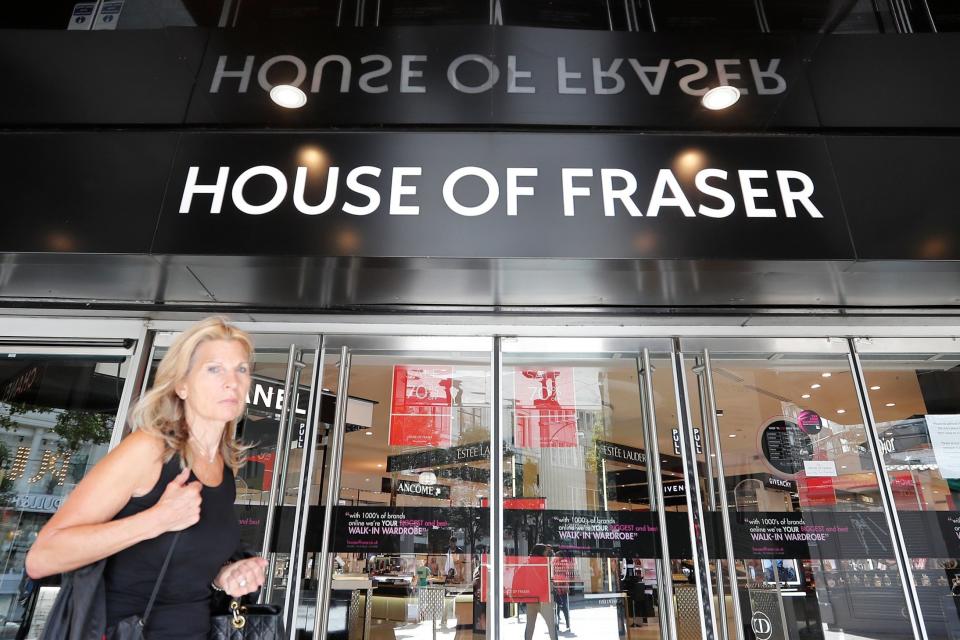Business rates are killing high streets in London. It’s time for a rethink

There’s been no shortage of crazy taxes over the years. In the 17th century the Russian government announced a tax on beards, which would definitely raise a fair bit of money if it was introduced in Shoreditch today.
The 18th century saw English taxes on printed wallpaper as well as hats — with rich folk paying extra to have their heads covered. There was even a levy on the powder people used to put on their wigs. And if you look closely at old buildings in London you often see that windows have been bricked up — because once upon a time you had to pay taxes based on the number of windows you had in your house.
That’s not all. There was even a tax on fireplaces, which immediately led to people blocking them up with bricks to avoid paying the tax (while shivering in the cold).
It’s easy to look at these historical examples and think that we’d never have such daft rules today, as we’re much more sensible now.

If only. When it comes to the all-time most stupid tax in British history, we’re living with it at this very minute. It goes by the name of business rates, and unless you run a company or work in accounting, you might not know how it works, and why it’s so utterly bonkers and unfair. Let me explain.
Business rates are a tax on commercial property: shops, pubs, offices and factories. And they’re a big cost. A typical micro-enterprise in London, employing fewer than 10 people, has to pay around £17,000 in business rates each year. That’s a lot of money when you’re also trying to cover your rent and pay salaries too.
But what’s bonkers about business rates is that you fork out the same amount no matter if you’re a start-up with zero revenues or if you’re a vastly profitable and wealthy enterprise with millions in the bank. The only thing that’s looked at is the building you’re in.
The other taxes you pay as a business — income tax, corporation tax, VAT and so on — are at least based on how well you’re doing and how much you’re selling. With business rates, whether you’re making nothing or earning a fortune, you get hit with the same bill.
How unfair is that? As the chairman of the Federation of Small Businesses (FSB) put it recently: “It’s a regressive tax that hits firms before they’ve made their first penny in turnover, let alone profit.”
But the madness doesn’t end there. Because business rates only apply if you have a physical premises, online-only digital companies pay far less, while e-commerce companies end up with tiny business rates bills because they might only have one or two distribution centres rather than lots of shops with big tax liabilities.
That’s a massive disadvantage for high-street stores versus online retailers, making it even harder for physical shops to compete.
Amazon actually got a cut in its business rates tax bill last year — because it has so few physical premises — while chains such as Toys R Us and Maplin go to the wall, with thousands of people losing their jobs. House of Fraser faced a similar fate before being rescued by Mike Ashley’s Sports Direct .
You see the consequences in towns and cities across the country. Waterstones boss James Daunt has described how the tax is “hollowing out” high streets and “puts Waterstones at a disadvantage to retailers like Amazon”.
"Amazon got a cut in its rates bill last year, while chains such as Toys R Us and Maplin go to the wall"
It’s incredibly sad. No wonder the British Retail Consortium says business rates are “no longer fit for purpose in the 21st century”, while the FSB describes the system as “outdated, unfair and not related to the ability to pay”.
But if that’s not bad enough, things are actually getting worse. This year the Government preposterously decided to double business rates in London, adding to the pressure on small businesses to survive amid all the economic uncertainty surrounding Brexit and making life unbelievably tough for shopkeepers and micro-enterprises.
A recent survey by Camden Town Unlimited found that business rates are now the biggest issue facing small businesses in London, which is heartbreaking as it’s entirely the result of bad government policy.
People are up in arms — and rightly so — but so far the Treasury’s response has been utterly useless. All that’s been announced is a small pot of money for local councils to hand out to a tiny fraction of businesses that have been affected, which has led to the opaque situation where a few favoured companies get help from councillors, while the vast majority never even get the chance to apply for help.
It’s a case study in flawed government thinking. You have a badly designed tax system to collect money, then create a murky and inefficient process for taxpayers to try to claw some of that cash back.
What’s really needed is a wholesale reform of business taxes to bring them into the 21st century. That means scrapping business rates and replacing them with a fairer regime that creates a level playing field between digital companies and ones that happen to have a shop or physical premises. There’s no shortage of options out there, such as transaction taxes, which would also have the benefit of forcing the likes of Starbucks and Amazon to start paying their fair share of tax in the UK.
Political leadership is missing. Making major reforms of the tax system is never straightforward. There will always be powerful lobbyists arguing that things should stay as they as they are, and it’s usually the easiest thing just to kick the can down the road.
Unfortunately for Britain’s high-street shops, pubs and small enterprises, we’re rapidly running out of road. Business rates are killing jobs and livelihoods in London and beyond. The question is — does anyone in government care?

 Yahoo News
Yahoo News 